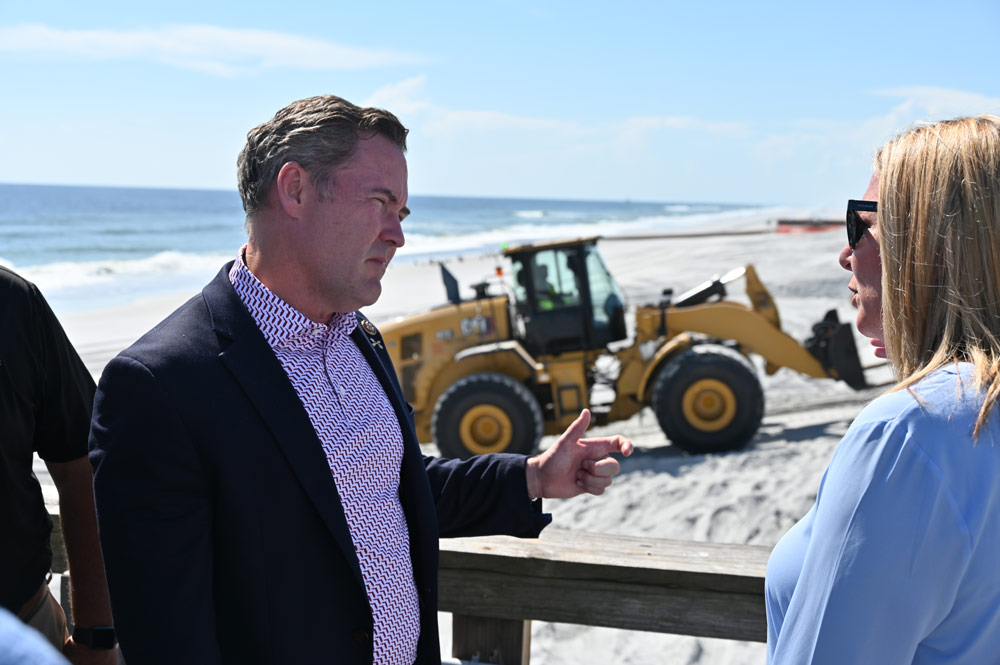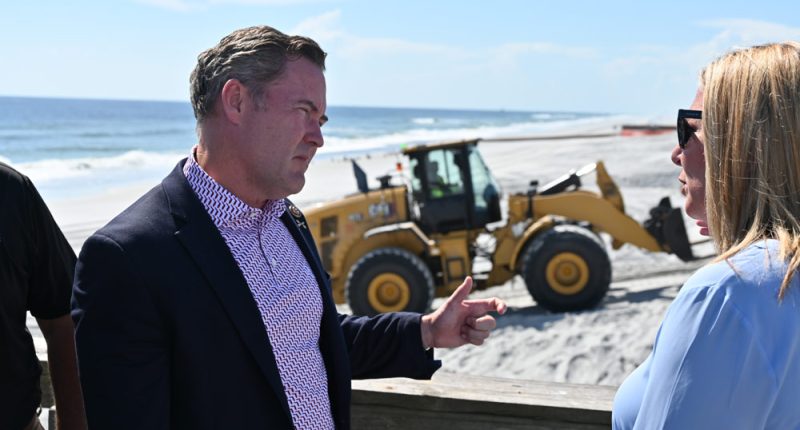
Perhaps Mike Waltz should have stuck to beach and sewer issues in Flagler County and the rest of the 6th Congressional District.
The former congressman Donald Trump tapped as his national security adviser is at the center of the gravest scandal facing an administration embroiled in controversies since its first day, 64 days ago. Waltz may have violated provisions of the Espionage Act that control national defense information, according to the journalist to whom the information was leaked.
Mark Warner, vice chair of the Senate Intelligence Committee, characterized the breach as “sloppy, careless, incompetent behavior.” John Thune, the Senate majority leader, called it an “error in judgment,” putting it on the White House to “figure out now how to ensure that something like this never happens again.”
Waltz as a member of Congress rarely made a pubic appearance without touting his Bronze Star-decorated Green Beret. Between March 11 and March 15, he included a journalist in an encrypted group chat that disclosed classified attack plans against Yemen’s Houthis hours before U.S. troops launched them. The disclosure was reminiscent of Trump’s carelessness with classified documents, for which he was indicted on 40 felony counts before the case was dropped when he was elected last November.
“The world found out shortly before 2 p.m. eastern time on March 15 that the United States was bombing Houthi targets across Yemen,” the Atlantic’s Jeffrey Goldberg wrote on Monday. “I, however, knew two hours before the first bombs exploded that the attack might be coming. The reason I knew this is that Pete Hegseth, the secretary of defense, had texted me the war plan at 11:44 a.m. The plan included precise information about weapons packages, targets, and timing.”
Goldberg has been the editor in chief of the Atlantic since 2015. He frequently writes on Middle East issues. On March 11, Waltz sent him an invitation to join his group chat on Signal, two days later specifying that he would be included in the “Houthi PC small group.” Goldberg suspected it could be a hoax. It was not. The White House confirmed that the leaked information was accurate. Brian Hughes, the spokesman for the National Security Council, also confirmed to Goldberg the veracity of the Signal group.
The chat included Hegseth, Secretary of State Marco Rubio, and Vice President J.D. Vance, and Tulsi Gabbard, the director of national intelligence, among the 18 participants in total. Most have been merciless in criticizing Democrats for allegedly mishandling information far less sensitive than any discussed in the Signal group.
“Team –,” Waltz texted on March 13, “establishing a principles [sic] group for coordination on Houthis, particularly for over the next 72 hours. My deputy Alex Wong is pulling together a tiger team at deputies/agency Chief of Staff level following up from the meeting in the Sit Room this morning for action items and will be sending that out later this evening.”
The message surprised Goldberg: “It should go without saying—but I’ll say it anyway—that I have never been invited to a White House principals-committee meeting,” he wrote, “and that, in my many years of reporting on national-security matters, I had never heard of one being convened over a commercial messaging app.” Goldberg remained on his guard, skeptical that any of it was authentic as the chat kept generating messages either directly from participants or from people claiming to be their representatives. The chatter had the ring of amateurs signaling their importance through torrents of acronyms.
Goldberg, consulting with colleagues considered the possibility that it was all part of a disinformation campaign–a common tactic among American intelligence agencies going back decades. “I had very strong doubts that this text group was real,” Goldberg wrote, “because I could not believe that the national-security leadership of the United States would communicate on Signal about imminent war plans. I also could not believe that the national security adviser to the president would be so reckless as to include the editor in chief of The Atlantic in such discussions with senior U.S. officials, up to and including the vice president.”
It got stranger from there as Waltz disclosed new developments and a policy discussion followed, including guarded words from the person identifying himself as Vance: “‘Team, I am out for the day doing an economic event in Michigan. But I think we are making a mistake.’ (Vance was indeed in Michigan that day.) The Vance account goes on to state, ‘3 percent of US trade runs through the suez. 40 percent of European trade does. There is a real risk that the public doesn’t understand this or why it’s necessary. The strongest reason to do this is, as POTUS said, to send a message.’” He advised waiting a month to prevent an oil-price spike. Goldberg notes that it’s a rare window into Vance diverging from the president, if in private.
Hegseth doesn’t want to wait. “I think messaging is going to be tough no matter what,” the secretary of defense replied to Vance, “– nobody knows who the Houthis are – which is why we would need to stay focused on: 1) Biden failed & 2) Iran funded.” Vance conceded: “if you think we should do it let’s go. I just hate bailing Europe out again.” The two exchange derisive and sophomoric comments about European nations–Hegseth calls them “PATHETIC”–and boasting about American capabilities (“Mike is correct,” Vance wrote of Waltz, “we are the only ones on the planet (on our side of the ledger) who can do this. Nobody else even close.”
On March 15, “Peter Hegseth” posted an update Goldberg refused to disclose in his article. “The information contained in them, if they had been read by an adversary of the United States, could conceivably have been used to harm American military and intelligence personnel,” Goldberg wrote. “What I will say, in order to illustrate the shocking recklessness of this Signal conversation, is that the Hegseth post contained operational details of forthcoming strikes on Yemen, including information about targets, weapons the U.S. would be deploying, and attack sequencing.”
That was at 11:45 a.m. The attack came two hours later. Then it was Waltz’s turn to update, with “amazing job” and details Goldberg again refused to disclose. Waltz was then on the Sunday talk shows, boasting about the contrast between the Trump administration’s handling of Houthis and that of the Biden administration.
Waltz on Monday, before the leak was reported, was defending the administration’s use of the 1798 Alien Enemies Act to deport migrants and echoing the administration’s attacks on the federal judiciary.







